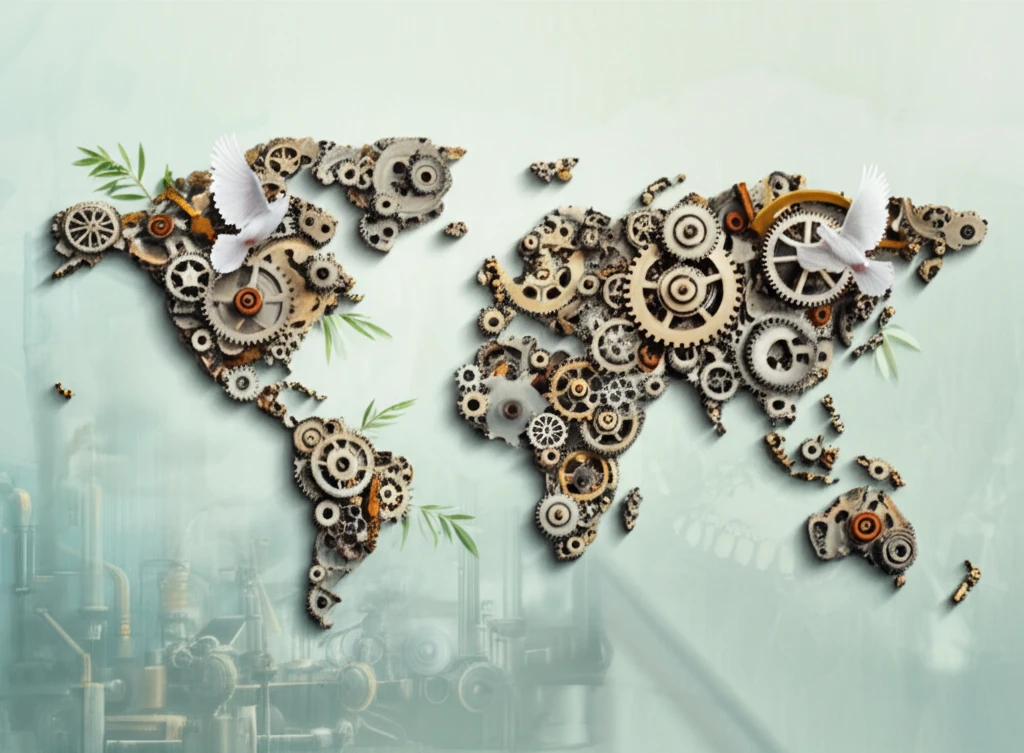
Geopolitics Unveiled: How International Relations Shape Our World
"A deep dive into conflict, cooperation, and power dynamics in the 21st Century."
In an increasingly interconnected world, international relations (IR) plays a pivotal role in shaping the destiny of nations and the global community. It is a multifaceted field that encompasses diplomacy, conflict, cooperation, and competition among states, international organizations, and non-governmental actors. Understanding IR is crucial for navigating the complexities of our modern world and making informed decisions about global issues.
This article explores the core aspects of IR, drawing from a diverse range of academic research to provide a comprehensive overview. We will delve into the influence of international organizations, the impact of global events, and the dynamics of power, conflict, and cooperation that define this ever-evolving field.
By examining the research, this article aims to equip you with the knowledge and insights necessary to grasp the key forces driving international relations today. Whether you're a student, a policy maker, or simply a curious citizen, this exploration will offer valuable perspectives on the global landscape.
The Power of International Organizations: Shaping Global Governance

International organizations (IOs) have become indispensable players in global governance, acting as platforms for cooperation, negotiation, and the establishment of international norms. The UN Security Council, for instance, plays a vital role in addressing global conflicts, while the World Trade Organization (WTO) shapes international trade policies. Understanding how these organizations function, their strengths and limitations, is essential for comprehending the dynamics of international relations.
- The UN: Maintains peace and security, promotes sustainable development, and provides humanitarian assistance.
- The EU: A unique political and economic union promoting integration and cooperation among its member states.
- The WTO: Regulates international trade, aiming to reduce barriers and promote fair competition.
- NATO: A military alliance focused on collective defense and security among its members.
Navigating the Future of International Relations
As we move forward, understanding international relations will only become more critical. From addressing climate change and pandemics to managing geopolitical tensions and economic interdependence, the challenges facing the global community require informed and collaborative solutions. By engaging with the latest research and fostering critical thinking, we can contribute to a more peaceful, just, and prosperous world.
